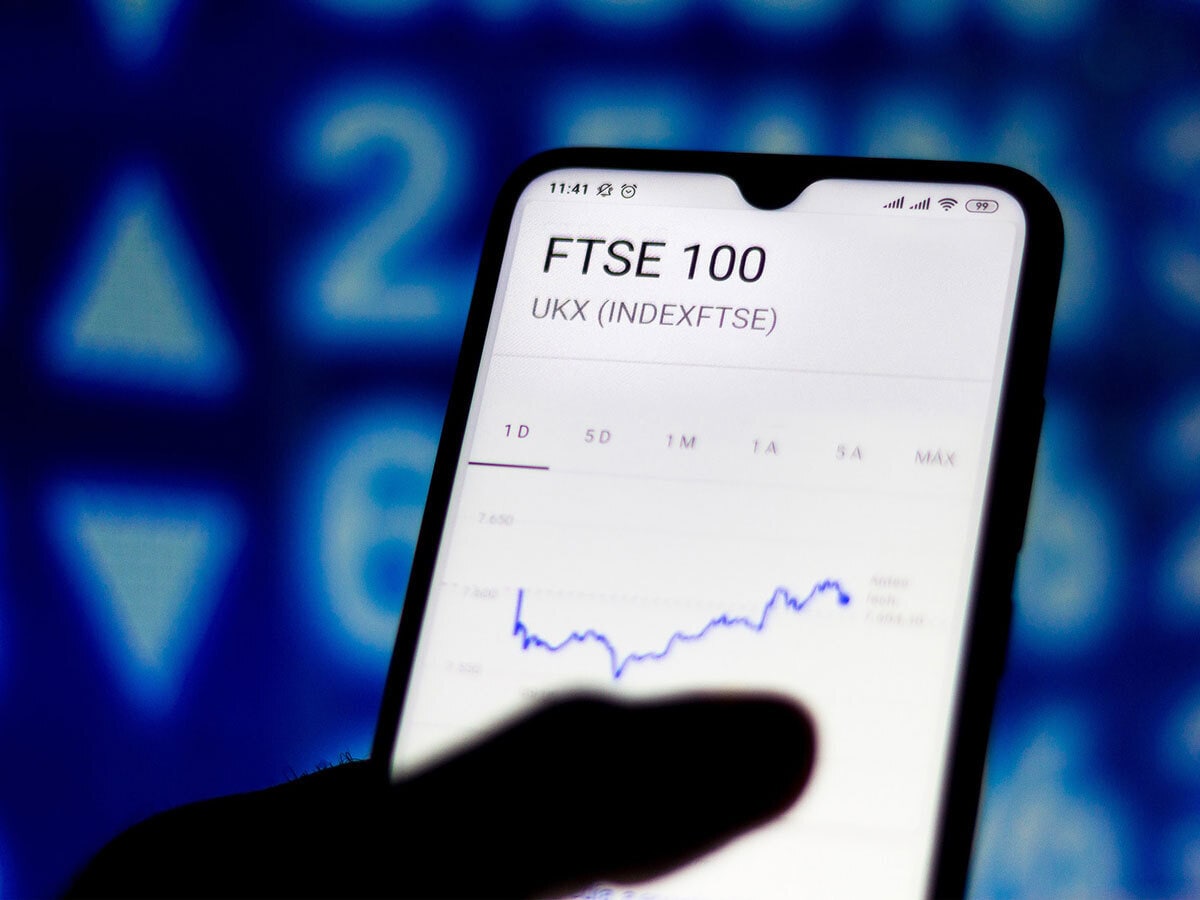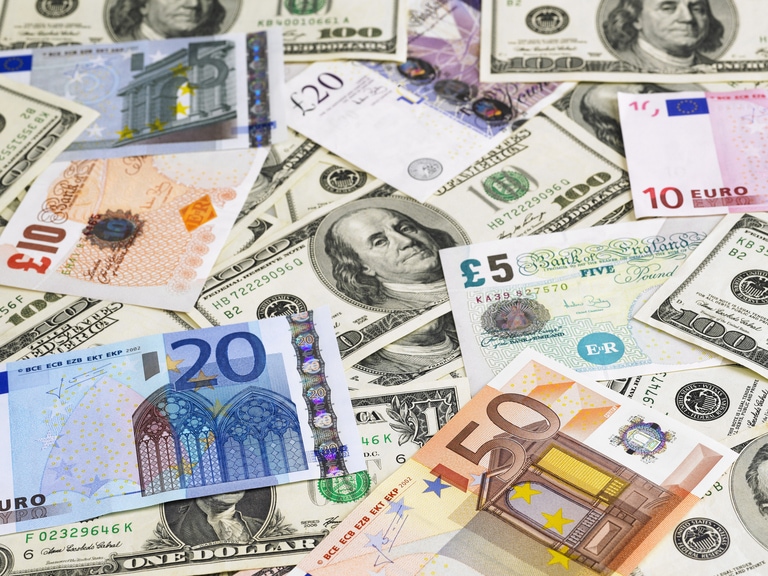It’s been another day of disappointing economic data with French, German and UK flash manufacturing and services PMIs coming in well below expectations and pointing to a -0.2% contraction in Q3 GDP.
Europe
Rather perversely this hasn’t been taken as the negative as it might have done as it serves to prove that the rate hikes that have been implemented by central banks are starting to have the desired effect, as services sector activity slowed more than expected in August.
It could also mean that we might see a pause from the ECB next month, and at the most another 25bps from the Bank of England when they next meet in September.
Consequently, the weak data has helped push the FTSE100 to a one-week high, as well as helping it to outperform its European peers, as the more defensive areas of the market outperform, helped by utilities after RBC named National Grid and SSE as its preferred picks in the sector.
The sharp slide in UK PMIs has given the UK real estate and housing sector a lift, as Bank of England peak rate expectations get revised lower, with Segro and Land Securities getting a lift, with modest gains for Taylor Wimpey and Barratt Developments.
Rising metals prices are also offering a lift to the likes of Fresnillo and Anglo American.
On the downside retailers are taking a hit again due to events over in the US, with JD Sports amongst the biggest fallers again today Yesterday its shares fell sharply on the back of a weak update from US peer Dick’s Sporting Goods, and the shares have been given another slap lower after a similarly weak update from US sports retailer Foot Locker, whose shares have plunged to 10-year lows.
US
US markets opened modestly higher against a backdrop of softer yields and weaker than expected economic data. The latest US manufacturing and services PMIs for August followed the trend set this morning in Europe, coming in below expectations at 47 for manufacturing and 51 for services.
The weaker data, while sending yields lower is also paring expectations around future rate hikes, helping to pull US stocks further away from their recent lows.
On the earnings front it’s been a bit of a nightmare for US retail today albeit with some bright spots.
US sporting goods retailer Foot Locker has seen its shares plunge to a 10-year low, after sliding to a loss in Q2 of $0.05c a share and falling short on revenues at $1.86bn. Inventory levels came in higher than expected, with signs of softening demand in July. The retailer also slashed its full profit outlook from between $2 and $2.25 to $1.30 and $1.50, as well as pausing the dividend. Nike shares are also lower on the back of this.
Peloton has also disappointed after downgrading its Q1 revenue outlook to between $580m to $600m, while also slipping to a bigger than expected Q4 loss of $0.68 a share, although Q4 sales did manage to beat forecasts at $642m. The costs of a seat post recall in May proved to be much higher than predicted and that served to weigh on profits and looks set to continue to do so. The company also said it doesn’t expect to remain free cashflow positive over the next 2 quarters.
Abercrombie & Fitch on the other hand is rallying hard after boosting its full year outlook.
Nvidia is also in focus ahead of its Q2 numbers which are due after the closing bell. Nvidia is the best performing US share so far this year, up over 150%, and up over 200% from its October lows, The shares hit new record highs yesterday before retreating sharply, with a lot of the move higher driven by optimism that its high specification chips would be able to power an AI revolution. This optimism has powered the shares to a $1tr valuation the first time a chipmaker has achieved such a feat. Q2 revenues are expected to come in at $11bn with data centre revenue expected to contribute $7.78bn of that total, more than the total revenue we saw in Q1. With so much already priced in Nvidia guidance will need to be stellar to sustain the gains seen so far.
Tesla shares are lower on reports that the German plant has lowered its production target due to slower output.
FX
It’s been a mixed day for the US dollar, falling sharply against the Japanese yen as US bond yields slid back sharply, after this afternoon’s weaker than expected US PMI numbers.
On the other hand, the pound has been the worst performer as the UK decided that whatever France and Germany could do it could match, as manufacturing PMI activity collapsed to 42.5 in August, and services activity collapsed to 48.7. If this data trend continues it is estimated that UK economy could contract in Q3, while headline inflation could slow to 4% by year end.
The pound initially hit its highest levels in 11 months in the wake of this morning’s French and German flash PMI numbers, while the euro slipped to two-month lows against the US dollar, after a sharp slide in services sector activity in both France and Germany during August. This weakness only serves to add the headaches facing the European Central Bank as they decide whether to raise rates again in September. The poor nature of today’s services PMI numbers lends itself to the idea that we could see a pause in the rate hiking cycle, however a rise in services inflation in the German services sector will be a concern for the ECB when it comes to the sticky nature of underlying as well as core inflation.
Commodities
Today’s disappointing economic numbers on both side of the Atlantic have cut the rug out from underneath crude oil prices, falling to one-month lows, and down over 4% from their peaks of earlier this month. Concerns over demand in China, had served to call a halt to the recent rally from the June lows. The sharp slowdown reflected in today’s August PMIs which points to a Q3 contraction of -0.2% is a further indication that recent rate hikes are now starting to bite in earnest.
Today’s disappointing economic numbers which have helped to push yields lower has been good news for gold prices, pushing back above the $1,900 level and the 50-day SMA, and on course for its best one-day gain since July.
We’ve also seen similar weakness in European and UK natural gas prices which are now starting to unwind some of the gains seen over the past week or so on concern over strikes in the Australian LNG sector.
Volatility
Baidu issued significantly better than expected earnings news on Tuesday, providing the stock with a meaningful boost. The underlying has added around 5% since testing close on three-month lows at the start of the week. One day volatility stood at 78.27% against 54.06% on the month.
Keeping with the stock specific theme, Tesla remains an active trade as it gave back Tuesday’s early gains. Upside from the start of the week remains intact but one day vol stood at 79.19% against 64.86% for the month.
Sugar prices continue to trend lower although appear to have found support at around 23.5 cents per pound, a level which held well around seven weeks ago. There’s still the risk that poor harvest data could however see prices advance and current levels are around 30% higher than we saw a year ago. One day vol printed 42.36% against 36.83% on the month.
Finally, the Hang Seng has been in for a turbulent ride, with Hong Kong’s equity index rallying off nine-month lows before promptly reverting as measures to aid growth received a lacklustre reception. With the underlying having made a 350-point round-trip, one day vol stood at 30.21% compared with 28.11% for the month.






